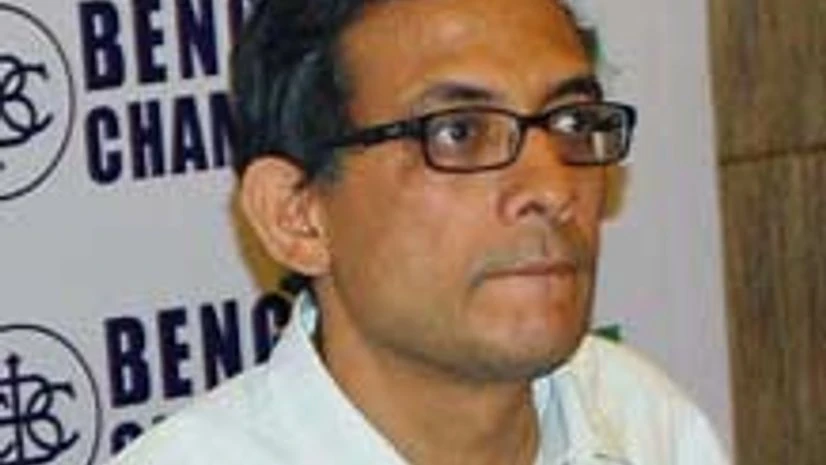Abhijit Vinayak Banerjee, Ford Foundation International professor of economics at the Massachusetts Institute of Technology, has slammed the government's Right To Education (RTE) programme. This, he said, was only a step towards ensuring a means of livelihood for teachers.
Banerjee said the programme, implemented in 2009, lacked sense. He said he wasn't hopeful about the outcome of the initiative. "It is simply for the teachers, by the teachers, and of the teachers. It ensures the livelihood of school teachers," he said, while addressing a seminar organised by the Bengal Chamber of Commerce & Industry.
He said as RTE didn't focus on all issues in the education sphere, he favoured "a Right to Learn".
Also Read
"Before 2009, the education level was flat. But there has been a perceptible decline after the RTE came into force. In RTE, there is a lot of emphasis on the teacher-student ratio, the teacher's salary and physical infrastructure. Studies have shown no correlation between these factors and improvement in learning. On the other hand, it may force many schools to shut, as they cannot afford high salaries or huge infrastructure," Banerjee said.
He added the focus was on completing the syllabus. "Learning" wasn't mentioned in RTE, something that pointed to what was wrong with the legislation, he said.
He pointed to the findings of the Annual Status of Education Report 2012 by non-governmental organisation Pratham, which stated 72 per cent of rural students in West Bengal (class I-VIII) were taking paid tuition classes outside school. Banerjee said the RTE Act had omitted the role of parents/guardians in evaluating teachers' performances. Since no annual public examination was held, the Act had, in effect, freed teachers from any accountability. He said the current system was designed in a way that "it teaches an ideal student, not the real student".
West Bengal Human Rights Commission Chairman Asok Kumar Ganguly termed it a ploy by state governments who didn't wish to see every child being educated. "Government schools are on the verge of closure, as everyone runs to privately-operated English medium schools. Education is the safest business. Today, you have AC classrooms, AC buses and inordinately high fees. Private education has taken away access to education from a large section of the population," he said.

)
